The Worst Things You Can Do When Going Plant-Based
Going plant-based, either for a few weeks to reset your diet (á la Beyoncé) or as a way to reduce your carbon footprint, has gained a lot of traction these past few years. But subtraction doesn’t always equal addition, and just because you’ve removed animal products from your diet, doesn’t mean you’ve replaced them with nutrient dense, healthy whole foods.
Whether you’re plant-based or thinking about it, we’re running down the worst things to do when going plant-based.
You Don’t Get Enough Protein
If you’re thinking about going plant-based, you’ve probably heard, ‘but where will you get your protein from’? Getting enough protein should be a priority in any diet (like us hard working athletes in #ReflexNation), but is especially crucial for people following a more restrictive vegan.
There is a wide variety of plant-based protein sources out there that can provide you with the same amount of protein as animal sources. Beans, lentils, nuts and seeds, tofu and tempeh, are all fantastic sources that can provide you with the same amount of protein as animal-based sources.
One criticism of plant-based proteins is that they are ‘not complete’ proteins, meaning they lack or are limited in certain essential amino acids. In response to this people believed that you had to ensure you balanced your proteins at every meal to make sure you were getting all the amino acids your body needed to thrive (think beans + rice). We now know this way of thinking doesn’t apply. Your body doesn’t need a balanced protein at every meal but instead can store amino acids to use when reserves get low. This doesn’t let you off the hook for being mindful of your protein intake though. To make sure your body has enough stores, you need to eat a wide variety of plant-based proteins throughout your day. Mix things up switching between quinoa, black beans and various types of nuts and seeds. If you’ve had a hard workout (or are just struggling to get your plant-based protein in at breakfast!), look for multi-sourced protein powders like Vega Sport protein. This formula contains 30g of protein per serving from a combination of pea, alfalfa, pumpkin and sunflower seed proteins, plus 6g of BCAAs to help you with everything from recovery to immune support, to blood sugar balancing.
You’re Loading Up on Junk
Just because it is ‘plant-based’ or ‘vegan’ doesn’t inherently make it good for you. Oreos are vegan… enough said right? Ethical reasons aside, one of the primary reasons people turn to a plant-based way of eating is to be healthier. But eating a diet full of heavily processed foods, plant-based or not, isn’t the way to elevating your nutrition game.
Don’t be fooled by a ‘vegan’ or ‘plant-based’ claim. Be diligent and read labels, staying clear of anything that appears to be overly processed or too high in sugar or sodium.
You Fill Up on Too Many Carbs
Speaking of processed foods: If your plant-based diet contains daily green juices, granola, sweetened nut mylks, or protein bars, you may be eating too many carbs in the form of sugar.
Carbs are inherently a part of a plant-based diet, but choosing whole foods like oatmeal, sweet potatoes, fresh fruit and beans, offer a different type of carb than the previously mentioned foods. These whole foods contain fibre and complex carbs that fill you up and keep hunger pains away longer.
That said, portions still matter, especially if you are looking to lose weight or cut fat. If you’re concerned about eating too many carbs for your body type and goals, try counting your macros, choose whole foods that have no added sugar, and stay active to help regulate insulin levels and keep blood sugar steady.
You Don’t Pay Attention to Iron
Iron is the central molecule in hemoglobin; the protein that carries oxygen through our body. Iron balance in our body is critical, and without enough, we become anemic, feeling tired, lethargic and dizzy.
Dietary iron comes in two forms: heme and non-heme. Heme iron is found in animal foods like beef, fish and poultry, while non-heme iron is found in plant-based foods. Unlike heme iron, non-heme iron must be converted before it can be absorbed and thus may be less readily absorbed than its animal-based counter-part.
Non-heme iron is available in a wide variety of foods like oatmeal, blackstrap molasses, spinach and soy, however optimizing the absorption of iron (and your digestion!) is critical to get enough of this mineral. To improve the absorption of iron, always pair you iron source with a source of vitamin C. This might be splashing some lemon juice on your spinach or adding a handful of strawberries into your green smoothie. It’s also advised to, limit your intake of coffee and sparkling water as those can interfere with iron’s absorption.
If you think you might be suffering from iron deficiency anemia, always check with your doctor first, as too much iron can be just as damaging as too little iron.
Going plant-based can be a great way to include more veggies in your diet and reduce your carbon footprint, but like any diet, if it isn’t centred around whole foods and portion control it isn’t doing what it should. If you’ve got more questions about going plant-based, or want help finding the plant-based protein and supp’s that will help support your diet, come and visit us in store. We’ve got the expert advice to help you achieve your best.





